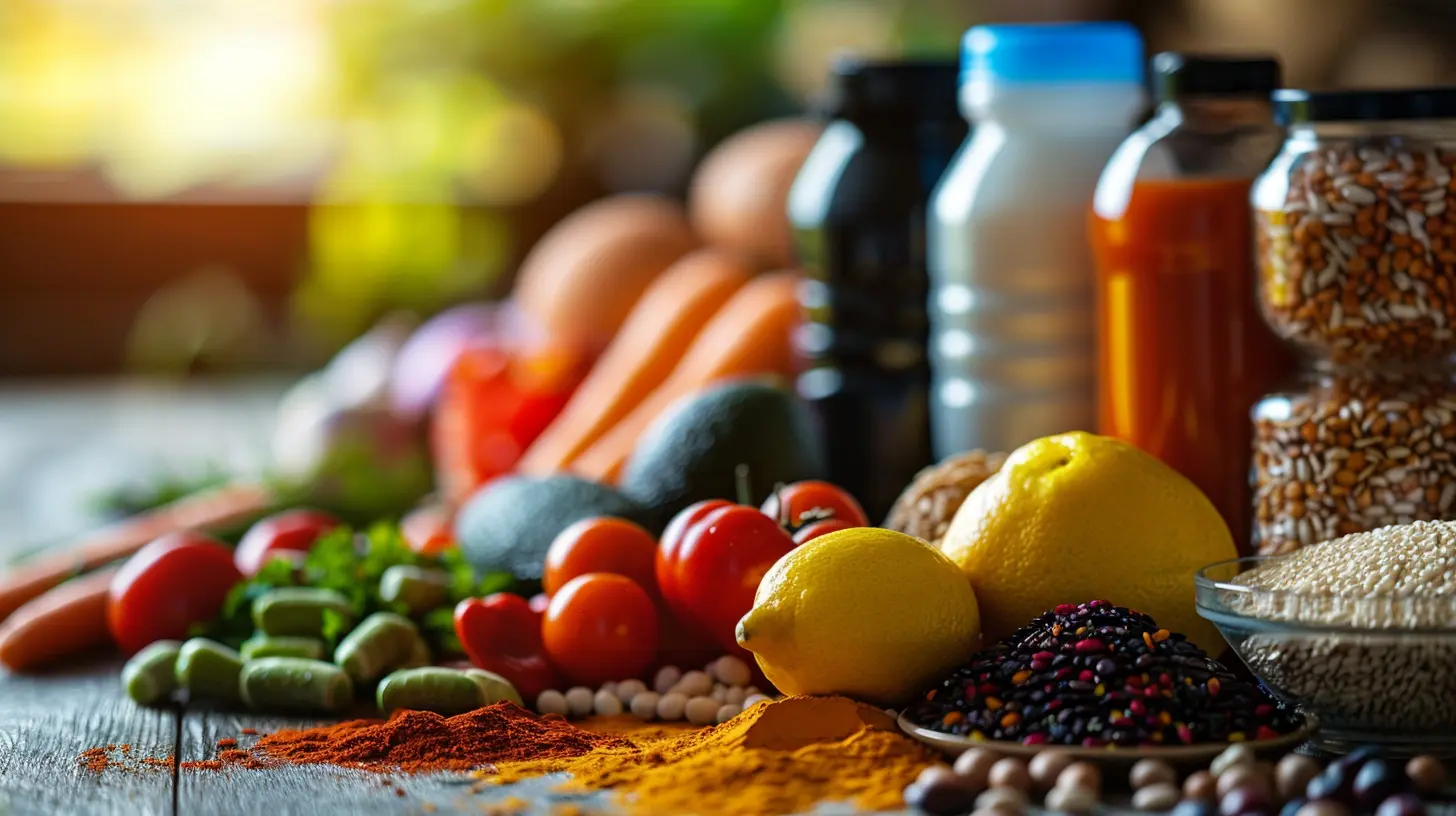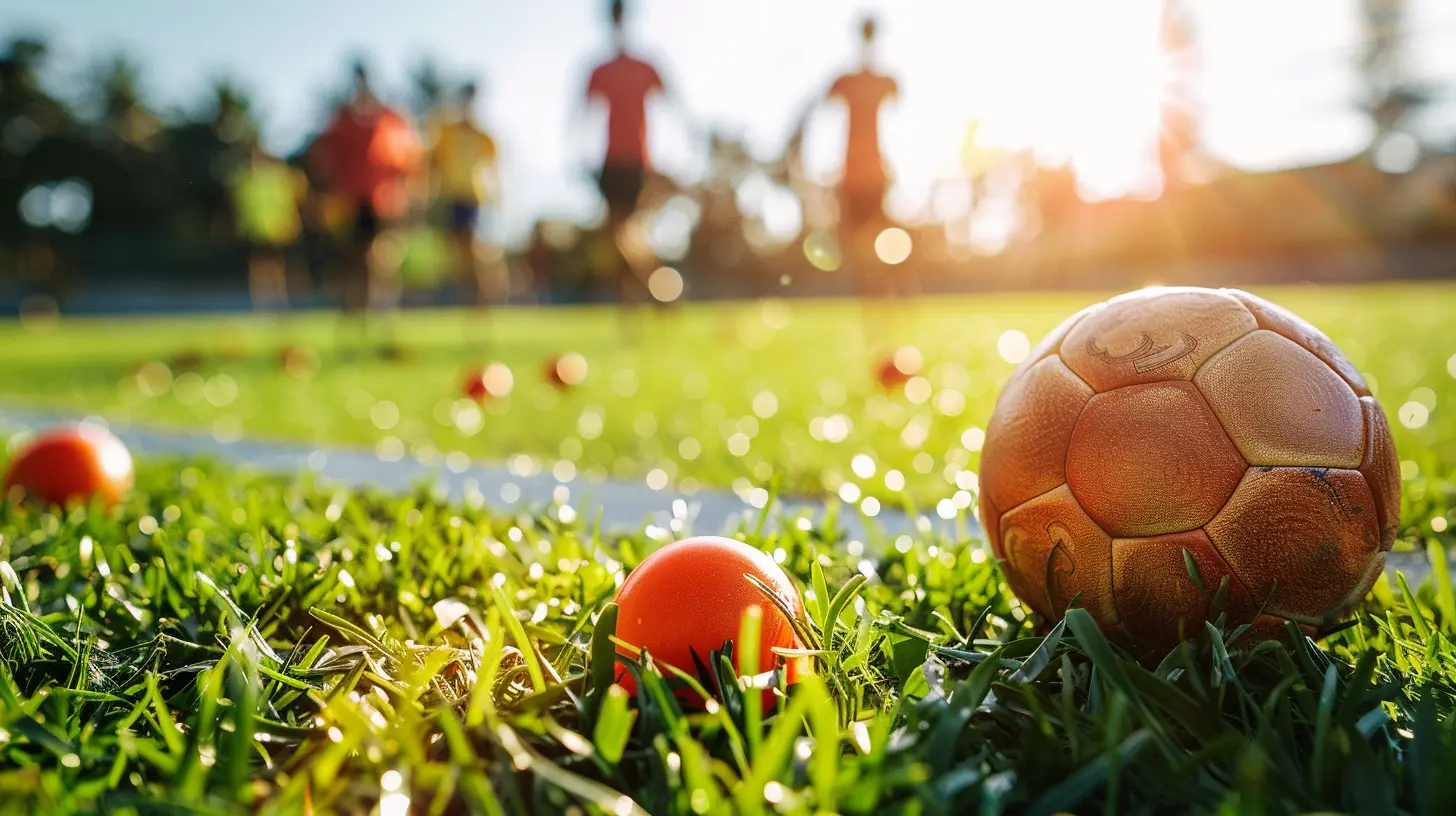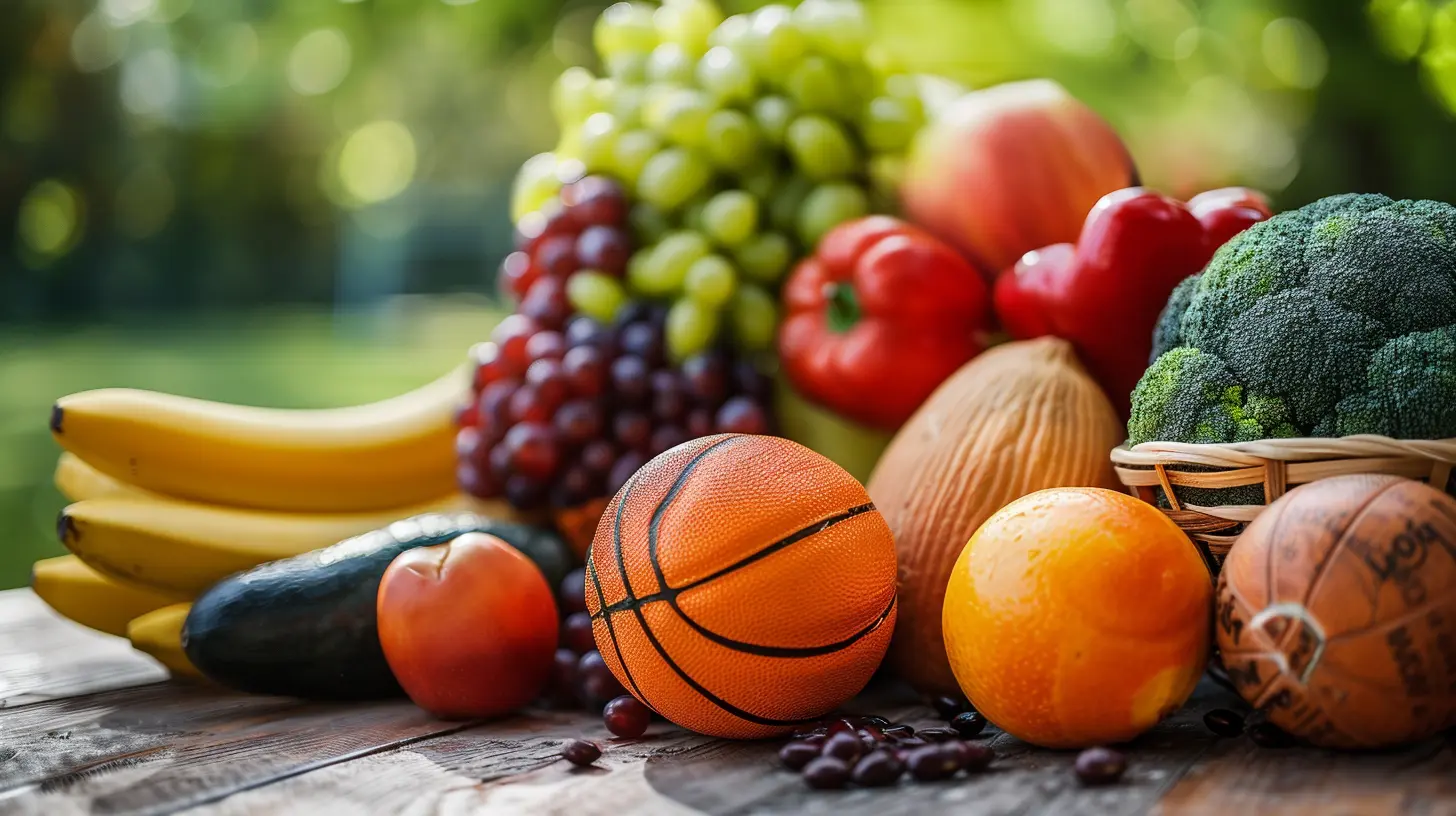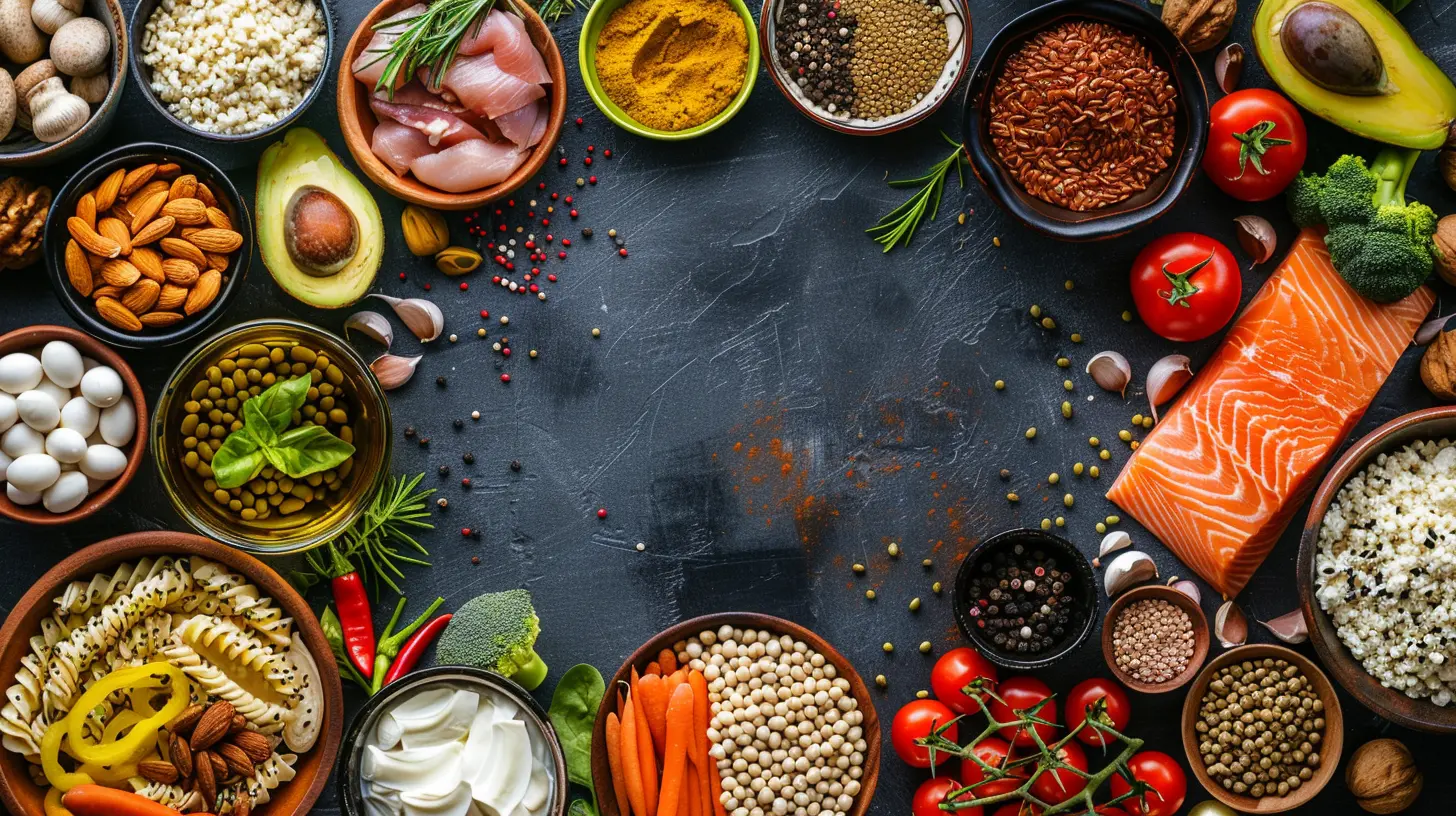Navigating Nutrition for Team Sports: Eating Right in a Group Environment
15 January 2025
When you think of team sports, what comes to mind? Speed, strength, strategy, and, of course, teamwork. But there's a crucial factor that often gets overshadowed by the action on the field or court: nutrition. Proper nutrition isn't just about fueling your body for individual performance; it's about ensuring that the entire team is running like a well-oiled machine.
In a group environment, maintaining good nutrition can be a bit tricky. You’re not just looking out for yourself; you're part of a bigger puzzle. So, how do you navigate eating right when you’re part of a team? Let’s dive into the world of sports nutrition and explore how athletes can maintain peak performance while juggling group dynamics.

Why Nutrition Matters in Team Sports
Picture this: You’re part of a soccer team. You’ve been training hard all week, and now it's game day. But one of your teammates didn’t eat breakfast, another overloaded on sugary snacks, and someone else skipped hydration altogether. How do you think that game is going to play out?Nutrition is the foundation for athletic performance. For team sports, where synergy and coordination are everything, it’s even more critical. If one player isn’t properly fueled, it can affect the entire team's dynamics. When everyone on the team is eating right, though, it leads to better endurance, quicker decision-making, faster recovery, and, ultimately, more wins.
The Importance of Balanced Energy
In team sports, you're relying on intense bursts of energy followed by short periods of rest. This stop-start nature means your body needs a steady supply of fuel, primarily in the form of carbohydrates, to keep going strong. But it’s not just about carbs.You also need:
- Protein: To repair and build muscle after those tough training sessions.
- Fats: For longer-lasting energy and to support overall health.
- Vitamins and Minerals: To keep your immune system strong and help your body recover quickly.
When you think about it, your body is like an engine. If you put the wrong fuel in, you’re not going to get very far, are you?

Challenges of Group Nutrition
Now, let’s get real. Eating right for your sport is hard enough when you’re doing it solo. Add in a group setting, and things can get complicated. Different people have different needs, preferences, and schedules. Some might be vegetarians or have food allergies, while others might have a sweet tooth that they just can’t shake off.Here are some common challenges you might face when trying to maintain good nutrition in a team environment:
1. Different Nutritional Needs
Not everyone on the team will have the same dietary requirements. A sprinter might need more fast-releasing carbs, while a goalkeeper might need a slightly different balance in their diet. Throw in varying body types, metabolisms, and fitness goals, and suddenly, you're looking at a nutritional jigsaw puzzle.2. Meal Timing
Coordinating meal times with your teammates can be difficult. Some players might need to eat earlier due to their personal schedules, while others might prefer to eat closer to game time. The key is finding a balance that works for everyone without compromising individual needs.3. Peer Pressure
Ever been at a team dinner when someone orders a giant burger and fries? It’s tempting to follow suit, even if you know it’s not the best choice for your performance. Peer pressure in a group environment is real. It can sway even the most disciplined athletes into making poor food decisions.4. Limited Food Options
When traveling for games or tournaments, food choices can be limited. You might find yourself stuck at a fast-food joint or relying on whatever the hotel has to offer. In these cases, making smart choices becomes even more important.
Strategies for Eating Right in a Group Environment
Knowing the challenges is half the battle. So, how do you overcome them? Here are some practical strategies to help you and your teammates stay on track when it comes to nutrition.1. Plan Ahead
This may sound obvious, but planning is your best friend. If you know you’re going to be traveling or in a situation where your food choices are limited, plan your meals in advance. Pack snacks like nuts, fruits, energy bars, and protein shakes to keep you fueled between meals.Pre-game meals should be planned at least 3-4 hours before the match. A meal rich in complex carbs, moderate in protein, and low in fat is ideal. Think along the lines of whole grain pasta with grilled chicken and veggies. Simple, but effective!
2. Encourage Team Discussions Around Nutrition
Have an open conversation with your teammates about the importance of nutrition. Maybe even get a nutritionist involved to give a talk or create a meal plan that everyone can follow. When the entire team is on the same page, it’s easier to hold each other accountable.You could also create a rotation where different teammates are responsible for bringing healthy snacks to practice or games. It’s a fun way to get everyone involved and ensures that there’s always something nutritious on hand.
3. Hydration Is Key
Water, water, and more water. I can’t stress this enough. So many athletes forget to drink enough water, especially in team settings where the focus is on the game. Dehydration can lead to fatigue, poor concentration, and muscle cramps — all things you want to avoid.Encourage your team to stay hydrated throughout the day, not just during practice or games. A good rule of thumb is to drink at least half your body weight in ounces of water per day. And during games or intense training sessions, adding an electrolyte drink can help replace the minerals lost through sweat.
4. Customize for Individual Needs
While team unity is important, nutrition is one area where a one-size-fits-all approach doesn’t always work. Encourage your teammates to understand their own bodies and tailor their nutrition accordingly. Some may need more protein, while others may need to focus more on carbs or fats. Knowing your individual needs is key to optimizing performance in a group setting.5. Post-Game Recovery Meals
After you’ve given your all on the field, court, or rink, it’s time to refuel. This is a crucial window where your body is craving nutrients to help it recover and rebuild muscle. A recovery meal should ideally be consumed within 30-60 minutes after the game or practice.A good recovery meal includes:
- Carbs: To replenish glycogen stores.
- Protein: To repair any muscle damage.
- Fats: To support overall recovery.
Smoothies with protein powder, yogurt with granola, or a simple turkey sandwich can be great post-game options.

The Role of Coaches and Team Leaders
Coaches and team leaders play a significant role in setting the tone for nutrition within the team. If you're a coach or captain, lead by example. Make nutrition a priority by providing education, setting expectations, and creating a culture where eating right is just as important as practice.You could even work with a sports nutritionist to develop team-specific meal plans that cater to different positions or fitness goals. The more structured and intentional your approach to nutrition, the more likely your players are to take it seriously.
Tips for Eating Together as a Team
Whether you're at a team dinner, on the road, or at a tournament, here are some quick tips for making sure the team stays fueled:- Go for whole foods: Opt for meals that include whole grains, lean proteins, and vegetables. Avoid processed foods whenever possible.
- Watch your portions: It’s easy to overeat when you're in a group setting, especially at a buffet. Stick to reasonable portions and listen to your body's hunger signals.
- Snack smart: Bring healthy snacks like fruit, nuts, and protein bars for between meals.
- Stick to water: Sugary drinks can sap your energy. Stick to water or electrolyte drinks to stay hydrated.
Final Thoughts
Eating right in a group environment isn't always easy, but with a bit of planning and teamwork, it's absolutely doable. The key is communication, accountability, and a shared commitment to staying fueled for optimal performance. After all, your body is your most important asset in team sports, and just like you practice together, you can also fuel up together.By making nutrition a priority, your team will not only perform better on the field but also recover faster and stay healthier throughout the season. So next time you're prepping for a game or practice, remember: it’s not just about what you eat, but how you and your teammates fuel up as a team. Together, you can create a winning formula.
all images in this post were generated using AI tools
Category:
Sports NutritionAuthor:

Fernando Franklin
Discussion
rate this article
19 comments
Lumen McNeely
In team sports, nutrition transcends individual choices; it becomes a collective journey. The synergy of shared dietary practices not only fuels performance but forges deeper bonds, illustrating that unity in nutrition mirrors unity on the field.
February 25, 2025 at 9:35 PM

Fernando Franklin
Absolutely! Nutrition in team sports not only enhances performance but also strengthens team cohesion, highlighting the importance of a unified approach to eating.
Kael Gray
Great insights! It’s so important for teams to prioritize nutrition together. Healthy eating really boosts performance and camaraderie on and off the field!
February 2, 2025 at 12:39 PM

Fernando Franklin
Thank you! Absolutely, prioritizing nutrition as a team is a game-changer for both performance and unity.
Isadora McGee
This article effectively highlights the complexities of nutrition in team sports, emphasizing the need for tailored meal plans and group dynamics. However, it would benefit from more practical, actionable tips for athletes.
January 30, 2025 at 1:47 PM

Fernando Franklin
Thank you for your feedback! I appreciate your suggestion for more actionable tips and will consider adding practical advice in future revisions.
Zephyrae McLemore
Team nutrition fosters performance and unity; crucial!
January 26, 2025 at 11:36 AM

Fernando Franklin
Thank you! Absolutely, proper nutrition is key to enhancing both performance and team cohesion.
Leah Stewart
Great insights on team nutrition! It’s crucial for athletes to understand how collective eating habits affect performance. Individual needs matter, but teamwork in nutrition can boost overall success.
January 26, 2025 at 5:17 AM

Fernando Franklin
Thank you! I completely agree—team nutrition plays a vital role in enhancing both individual and collective performance.
Raine McNeil
Fueling a team is about more than just food; it's about building unity and strength. Embrace the power of shared nutrition in sports! When athletes prioritize healthy choices together, they boost performance and camaraderie. Let’s champion each other and elevate our game—one nutritious meal at a time!
January 25, 2025 at 1:06 PM

Fernando Franklin
Absolutely! Shared nutrition fosters unity and enhances performance. Together, we can elevate our game through healthy choices!
Ariella Kelly
Great insights on team nutrition! Essential for optimizing performance and fostering camaraderie among athletes.
January 25, 2025 at 4:57 AM

Fernando Franklin
Thank you! I'm glad you found the insights valuable for enhancing both performance and teamwork in sports.
Zarev Sanchez
Great insights! Team nutrition is crucial for performance—individual needs and group dynamics make it a unique challenge.
January 24, 2025 at 9:28 PM

Fernando Franklin
Thank you! Absolutely, balancing individual nutritional needs with group dynamics is key to optimizing performance in team sports.
Daria Banks
Sure, team spirit is great, but nothing kills a game faster than poor nutrition. Fuel wisely or get benched!
January 24, 2025 at 1:30 PM

Fernando Franklin
Absolutely! Proper nutrition is essential for optimal performance. Fueling wisely ensures the whole team stays at their best.
Caitlin Bell
Team snacks: fuel or sabotage? Choose wisely!
January 23, 2025 at 12:29 PM

Fernando Franklin
Great point! Team snacks can either energize or derail performance, so choosing nutritious options is key to fueling success!
Virginia McKittrick
How do team dynamics influence individual nutrition choices in sports?
January 23, 2025 at 3:17 AM

Fernando Franklin
Team dynamics can significantly impact individual nutrition choices, as athletes often feel influenced by their peers' eating habits, group norms, and the social atmosphere during meals. A supportive team culture can encourage healthier choices, while negative dynamics may lead to poor nutrition decisions.
Bridget Adkins
Great insights! Remember, fueling up as a team can make you all champions on and off the field. Let's eat right and play hard! 🥗🏆
January 22, 2025 at 8:26 PM

Fernando Franklin
Thank you! Absolutely, teamwork in nutrition is essential for success both on and off the field. Let’s keep fueling our champions! 🥗🏆
Delta McGlynn
Team meals: where ‘sharing is caring’ means fighting over the last slice of pizza!
January 22, 2025 at 1:06 PM

Fernando Franklin
Absolutely! Team meals can spark friendly competition, but prioritizing balanced portions ensures everyone feels satisfied and fueled for success.
Callista Sweeney
In team sports, nutrition is a collective journey. Emphasizing whole foods, hydration, and balance fosters both individual health and team cohesion. Encouraging communication about dietary preferences and restrictions can enhance performance and unity, ensuring that every player feels supported and empowered to thrive.
January 21, 2025 at 1:02 PM

Fernando Franklin
Absolutely! Nutrition plays a pivotal role in team dynamics. Fostering open communication about dietary needs not only enhances individual performance but also strengthens team unity and support.
Karen McClintock
Great insights! Prioritizing nutrition in team sports fosters collaboration and performance. Remember, fueling your body together not only enhances individual health but strengthens team spirit. Keep pushing forward!
January 21, 2025 at 5:25 AM

Fernando Franklin
Thank you! Absolutely, shared nutrition practices can greatly enhance both individual performance and team cohesion. Let's keep focusing on fueling our bodies together!
Sybil Rivera
Ah, yes, because arguing over pizza toppings is the real secret to team success! 🍕🏅
January 19, 2025 at 11:36 AM

Fernando Franklin
While it may seem trivial, discussing pizza toppings can foster teamwork and communication, essential elements for success both on and off the field! 🍕🏅
Greta McKinstry
Fuel your team spirit with smart nutrition—together, we rise to victory!
January 16, 2025 at 9:24 PM

Fernando Franklin
Absolutely! Nutrition plays a vital role in team success, and when we support each other in making healthy choices, we elevate our performance together. Let's rise as one!
Anastasia McRae
Great insights on team nutrition! Fueling together not only enhances performance but also builds camaraderie and team spirit. Remember, strong bodies lead to strong teams! Let's prioritize healthy eating to elevate our game and support each other on and off the field!
January 15, 2025 at 8:57 PM

Fernando Franklin
Thank you! You're absolutely right—shared nutrition plays a vital role in both performance and team bonding. Let's keep promoting healthy habits together!
Marie McLaurin
This article sheds light on the often overlooked aspect of nutrition in team sports. It's refreshing to see the emphasis on collective eating habits and their impact on performance. Prioritizing balanced diets not only enhances individual health but also fosters team unity and camaraderie. A must-read for all athletes!
January 15, 2025 at 4:03 AM

Fernando Franklin
Thank you for your thoughtful feedback! I'm glad you found the article valuable in highlighting the importance of nutrition and team dynamics. Together, we can elevate performance and strengthen bonds!
MORE POSTS

Why Ticket Prices Are Skyrocketing for Major Sporting Events

Why Membership Programs Are Worth the Investment for Fans

How to Build a Pre-Game Routine That Reduces Injury Risk

The Role of Core Strength in Preventing Lower Back Injuries

How to Handle Snowboard Jumps Like a Pro

The Role of the Manager: Leading a National Team to Success

Stretching vs. Strengthening: Which Is More Important for Injury Prevention?

Football Dynasties: Clubs with Generational Success

The Influence of Street Football on Professional Players’ Skills

Overcoming the Impossible: Athletes Who Redefined What’s Possible

Learn the Rules of Golf: Common Situations Explained

Warm Up Right: Techniques to Prepare Your Body for Action